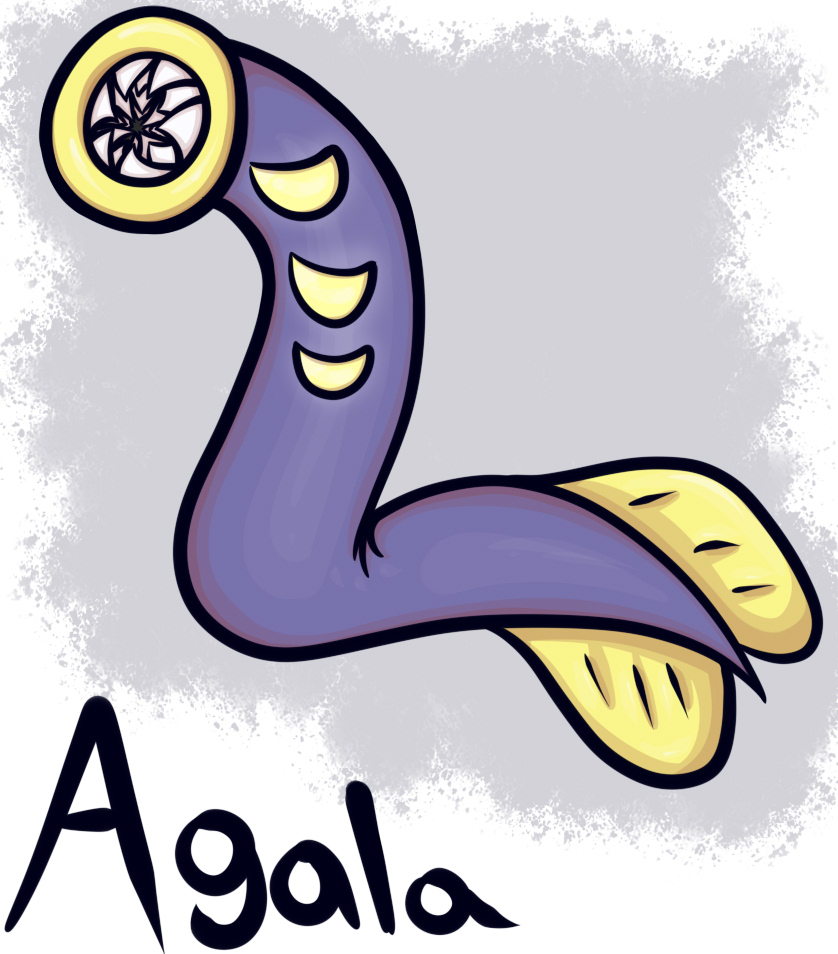Agala
Agala are Natura Ocean Finers that primarily inhabit the rivers and lakes of the tropical regions on the Zet Continent, though a smaller population can be found in the colder waters of the Prime Continent.
Agala are long, blue creatures with six eyes and yellow fins on their back end. Their head features large yellow lips that open into a mouth filled with sharp teeth.
Agala are carnivorous creatures capable of eating smaller prey, but they are most notorious for their ability to swiftly latch onto larger creatures, biting and sucking their blood.
An Agala will release its grip if taken out of the water or if violently attacked, but often leaves with a large chunk of its prey’s flesh. Because of this, Agala are considered very dangerous. It is recommended to call for medical help while keeping the Agala underwater and not to attempt removal by force. Proper tools are required for safe removal.
Agala have poor eyesight during the day, seeing things as blurred and unable to distinguish details, causing them to attack most moving objects. At night, their eyes glow slightly, their vision improves, and they become more cautious and selective with their prey, showing less aggression.
Their natural predator is the Cave Count, which is active at night and tricks Agalas into attacking it. The Cave Count uses its tentacles to constrain Agalas while they are stuck on its thick skin, then kills and eats them. It is theorized that Agalas' more cautious nighttime behavior is due to this predator-prey relationship.
Agalas have short sleep periods of no more than 10 minutes every few hours, but only one of the three parts of their brain sleeps at a time. While one part sleeps, the eyes connected to that part also rest, while the other parts and their respective eyes remain active.
To reproduce, a pair of Agalas bite each other's tails, forming a circle. Their teeth produce reproductive material, which is injected into the other's tail like venom. If successful, one or both Agalas will become pregnant and lay eggs about a month later.
Agala eggs have difficulty hatching in the Prime Continent due to its colder waters compared to the Zet Continent, keeping their population there small and contained.
Historically, Agalas were used as medical tools to suck 'contaminated' blood from sick patients or those experiencing muscular pain. While this practice has fallen out of favor in recent years, it has recently become popular in Polsize, necessitating the export of Agalas to the region.
In the culinary traditions of the Desautala and Finala regions, Agalas are prized. Their large steaks are often served in their own blood and are commonly found in buffets, and are frequently bought by large families.

Branch: Natura
Category: Oceans
Subcategory: Finers
Etymology: "Angila" (Eel) + "Bengala" (Flare)
Sex Ratio: Sexless
Sapience: ---